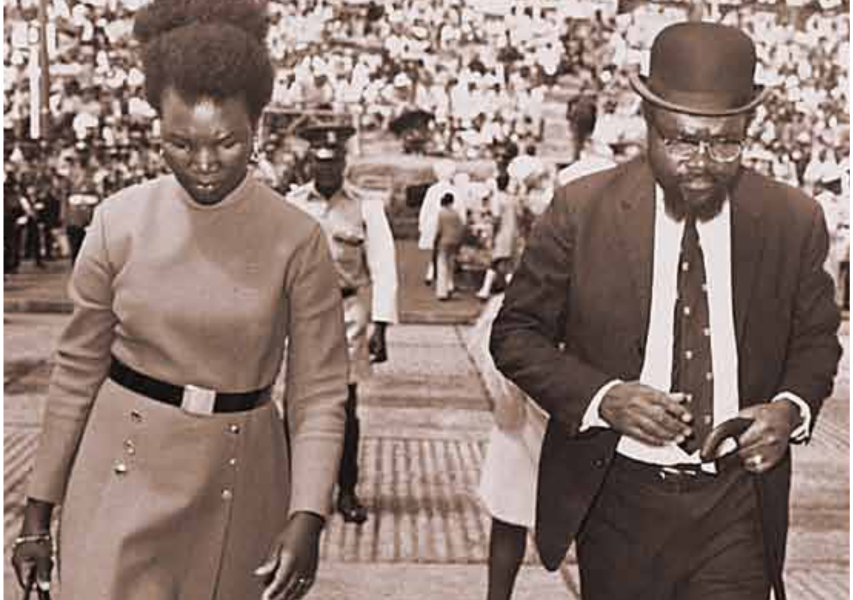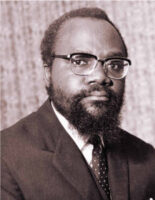
Isaac Edwin Omolo Okero had a relatively successful political career between 1969 and 1979 as a Cabinet Minister and Member of Parliament for Gem constituency in Siaya District. He served in various ministries in the Kenyatta administration between 1969 and 1978 and briefly in President Moi’s government as the Minister for Power and Communications (1978-1979).
For about a decade, Okero’s name was synonymous with Gem and national politics. He proved to be an astute and brilliant politician who knew how to make political manoeuvres and stamp his authority. These attributes made him stand tall among his peers and helped him to wade through the turbulent tide of politics.
Okero joined politics at 40, following in the footsteps of luminaries who had represented Gem constituency. Before him was Wasonga Sijeyo, an ardent supporter of Odinga, and C.M.G. Argwings-Kodhek. Sijeyo held the seat for a few months. He was arrested and detained for being a member of KPU.
Okero, popularly known as “The Barrister”, was born on July 28, 1929, at Ulumbi village in Gem, near Yala town. Like other children, he worked on the farm, fetched firewood and looked after cattle. Having been born near the home of the no-nonsense Senior Chief Odera Akang’o, who ensured that education was not compromised in Gem, Okero attended Ulumbi and Uranga primary schools. “At that time, education was crucial and you were nothing without education,” he reminisces.
After primary school, he went to Ambira High School, whose headteacher was Mark Wellington Ombaka, the father of a later Gem MP, Oki Ooko Ombaka. The senior Ombaka was the first person from Gem to join Makerere College and the first African to head Ambira High School.
At Ambira, Okero’s schoolmates were Bethwel Ogot, now a professor of history and Chancellor of Maseno University, and Wilson Warambo, the first African Fellow of Royal College of Surgeon (FRCS) in Kenya.
Between 1946 and 1947, Okero and Ogot joined Maseno School for a two-year Junior Secondary Education course. At Maseno, his schoolmates included people who later became prominent politicians and professionals — Cabinet Ministers Ayodo, Odero Jowi, Burudi Nabwera, Edward Khashahala and Thomas Odhiambo (the scientist who later founded the international research centre ICIPE).
Okero’s rebellious nature, however, prompted the principal of Maseno to send him to Alliance High School, Kikuyu, in 1948 for Senior Secondary School education. At Kikuyu (1948-1949), his schoolmates included Geoffrey Kareithi (who later became Head of Civil Service), James Mugo Waiyaki and Cyrus Muthiga.
In 1949, Okero passed the Entrance Examination and qualified to join Makerere University College in 1950 to become the third person from Ulumbi village to enrol in the institution after Ombaka Senior and Owiti Mudhune. He was at Makerere with President Kibaki and former Nairobi Town Clerk James Gitonga, who joined the institution in 1951.
In 1952, Okero was among students who pursued degree courses at the University of London. Minister Andrew Omanga was also at Makerere at the time. In August 1952, Okero led a students’ strike and was kicked out of Makerere. Josephat Karanja — later Kenya’s Vice-President — was also expelled.

SAMUEL KAMAU says:
A deeply incisive and analytical archival resource.